- Learning time
- 30 minutes
- First play time
- 120 minutes
Inis
Designed by: Christian Martinez
Inis is a game of area control that, as you might expect, involves combat – but combat isn’t necessarily the best approach to be the ultimate victor.
Inspired by Celtic mythology, Inis’ story is that the players are distinct clans newly arrived on the Isle of Inis, and looking to establish themselves as the dominant clan. During each round, players first draft and then play a hand of four – sometimes more – action cards at their disposal. The cards do a number of things on the board – actually a series of interconnecting tiles, called territories – such as adding more clans, moving clans, exploring new ground (and adding more territories) getting more cards, and so on. Basically, the cards do stuff for you, and the playing of them (as well as the drafting of them, as knowing what cards your enemies have is very helpful) is the dark heart of the game. Getting your clans out there is important, as we shall see, but it’s not the be-all and end-all thanks to Inis’ rather canny determination of the winner…
There are three ways to win. Simply being present in six (or more) territories, being Chieftain – having the most clans present; helpful in itself as each Chieftain gets an additional card to play – over six or more opposing clans in a single territory, or being present in territories containing six or more sanctuaries.
Sanctuaries are added via – you guessed it – playing a card, and then placing a little brown miniature in the territory. They don’t do very much except offer that path to victory. However, there’s another building (with miniature) to be constructed too: citadels. When a battle occurs (again; via cards) the citadels provide an interesting wrinkle: the next player in line from the instigator can hide in a citadel until the fighting is done: they then emerge again, whistling nonchalantly, to feign surprise at the bloodstains. If there’s more than one citadel, the next player can hide a clan in there, and so on.
The actual fighting is a simple matter of taking turns, from the instigator around anyone else still involved: choosing to attack (opponent must discard an action card or remove a clan) withdraw (to an adjacent territory they control) or play an appropriate card: some cards can be played reactively.
Players can also agree to end the clash, giving Inis a side-helping of tactical politicking. At the start of each round there is always a check for victory: often more than one player may have met one (or more) of the above-mentioned victory conditions. If that happens there are tie-breakers in place (most victory conditions being the most obvious, but after that, turn order coming into play) but note also that to claim a victory you must have a Pretender token: these are as easy as pie to get, you simply take one. But it does cost you a precious turn, and make it very obvious to your opponents that you feel you are close to victory!
The guru's verdict
-
Take That!
Take That!
There's a lot of take that in Inis. Each territory is a battle for control, and the cards have ramifications for everybody.
-
Fidget Factor!
Fidget Factor!
High on a first play, dropping considerably with each subsequent visit.
-
Brain Burn!
Brain Burn!
The first game of Inis is very much a 'well, I see this card does this' type of experience as you try things out. But as the (limited deck) of cards become more familiar, so the machinations playing out on the board come into focus in terms of possibility and potential. Inis rewards repeat plays...
-
Again Again!
Again Again!
...but of course you do need a group of people who like the direct interaction, plan-hampering and general mischief-making Inis lends itself to. Assuming you do, the card-drafting keeps things fresh, the newly-explored territories are randomly revealed and the decision space of the world of Inis is large enough that each visit has a feel of fresh danger and unpredictability.

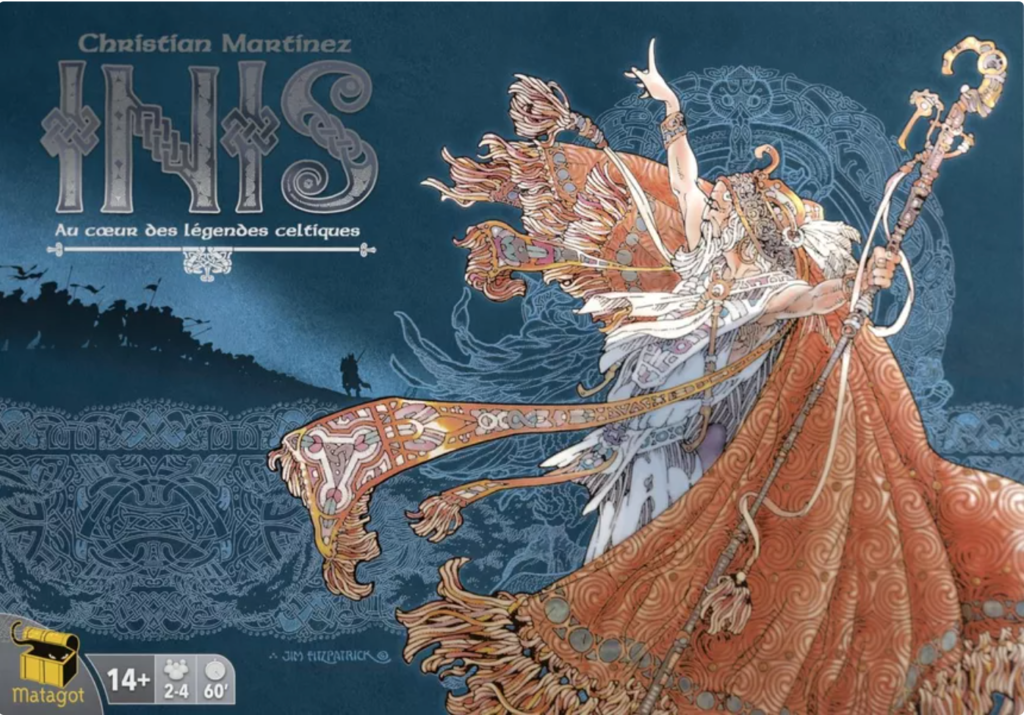
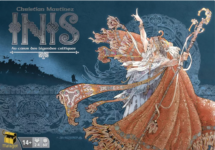
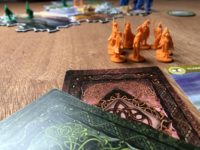
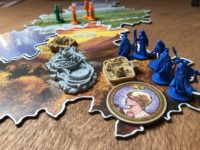
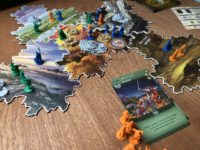
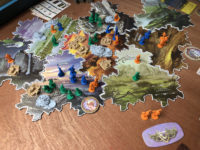


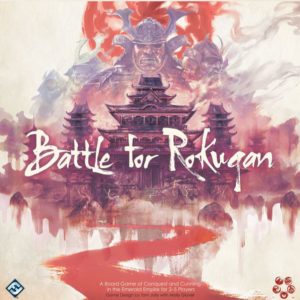
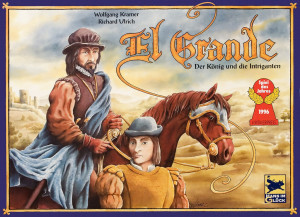

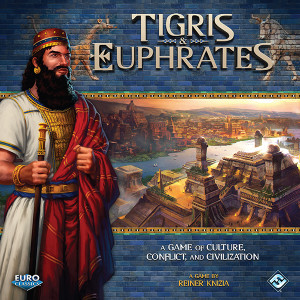
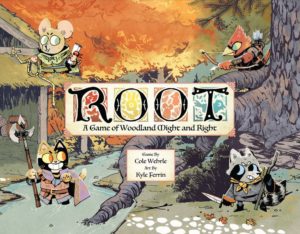
Sam says
Inis looks a brute with that big box, sweepingly epic illustrations and sense of portentousness when you start reading of clans, Chieftains and clashes. After following set-up for your first game however, there are only five pages of rules and what looks and feels like an odyssian undertaking can be over far quicker than expected. Familiarity with Inis' spinning wheels will bring the playtime down further, although we hear you can get caught in a play-another-round endgame when things are really close. It's not for the faint-hearted because players are targeting each other; particularly if someone is looking like a likely winner, but hey. Monopoly is ultimately about destitution and the immovable unfairness of capitalism, and that takes at least twice as long.